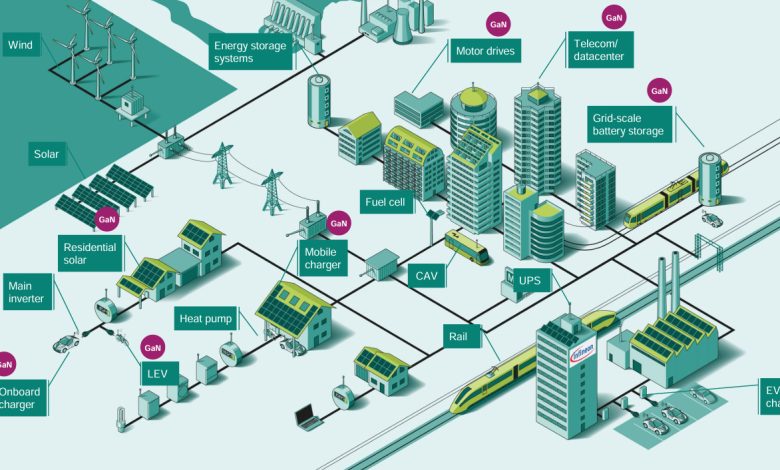Exploring Hardware Development and the Role of Promwad in Innovation

Hardware development is a complex, multi-disciplinary process that involves designing, testing, and producing physical devices, ranging from simple gadgets to intricate systems used in industries like telecommunications, automotive, and healthcare.
In today’s rapidly evolving technological landscape, companies must create hardware solutions that are not only functional and efficient but also innovative and scalable.
To achieve this, hardware development requires expertise in electronics, mechanics, and system integration.
One company that stands out in providing such expertise is Promwad, a leading provider of hardware design and development services.
What is Hardware Development?
Hardware development refers to the process of creating and designing physical devices or systems, including the components and circuits that make them work.
This process typically involves several stages, including concept development, design, prototyping, testing, and manufacturing.
At the core of hardware development is a detailed understanding of how individual components—such as microprocessors, sensors, and power management systems—interact with one another to create a fully functioning product.
Hardware development is not limited to consumer electronics; it spans a wide range of industries, including automotive, medical devices, telecommunications, industrial automation, and more.
The goal of hardware development is to ensure that the final product meets all specified requirements, functions reliably, and is optimized for cost, performance, and user experience.
The Stages of Hardware Development
The process of hardware development is typically broken down into several key stages, each of which requires specialized expertise and precision.
The first stage is conceptualization and planning, which begins with understanding the product’s purpose and objectives. This phase involves defining technical specifications, user needs, and potential challenges.
During this phase, hardware developers determine what components are needed, how they will work together, and what the end goal for the product should be.
Once the product concept is clear, the next step is design and prototyping. During this phase, detailed designs are created, often in the form of CAD (Computer-Aided Design) models.
This includes selecting materials, designing circuits, and ensuring the product fits within the desired specifications.
After the design is finalized, prototypes are created to test the design in real-world scenarios, which is crucial for identifying any issues with the product’s functionality or user experience.
The next stage, testing and refinement, ensures that the prototype works as intended. This phase involves rigorous testing to identify weaknesses or bugs, such as functional, stress, and safety testing.
If any issues are found, the prototype is refined to optimize its performance. The final stage of hardware development is manufacturing, where the product is mass-produced using the specifications from the prototype phase.
Once the product moves into production, the focus shifts to efficient production at scale while ensuring that the quality of each unit meets the desired standards.
Challenges in Hardware Development
The process of hardware development is filled with challenges that must be carefully managed to ensure a successful product. One of the most significant challenges is the complexity of the design itself.
Hardware development often involves creating intricate designs that require a high level of precision and technical knowledge.
Developing devices that are small, efficient, and reliable can be difficult, especially as products become more sophisticated.
Another challenge is the integration between hardware and software. Many modern hardware devices rely on software to function correctly, and ensuring that both hardware and software work seamlessly together is a task that requires close collaboration between teams with expertise in both areas.
Additionally, hardware development often comes with cost and time constraints. Prototyping and testing can take longer than anticipated, and production costs may exceed initial estimates, creating challenges in balancing time, cost, and quality.
Scalability is also a concern in hardware development. Ensuring that a product performs consistently across large volumes of units during manufacturing can be a challenge.
Small errors in the prototype phase can translate into large issues in mass production. Therefore, it’s crucial to address scalability concerns early in the design process to ensure the final product performs as expected when it reaches consumers.
The Role of Promwad in Hardware Development
Promwad is a leading electronic design company that specializes in hardware development, offering comprehensive services to bring hardware projects from concept to reality.
With a wealth of experience across industries such as telecommunications, automotive, and the Internet of Things (IoT), Promwad provides tailored solutions that meet specific client needs.
Their team of experts supports businesses throughout the hardware development lifecycle, helping to create high-quality, functional, and innovative products.
Promwad works closely with clients to design custom hardware solutions that meet unique specifications. From the initial concept stage, their team helps define technical requirements and ensures that the hardware design is both efficient and cost-effective.
They provide full design support, including schematic design, PCB layout, and circuit simulation, to ensure that the hardware system functions optimally.
Prototyping and Testing with Promwad
Once the design phase is complete, Promwad moves to prototyping, creating physical models of the hardware for testing.
The prototyping process helps identify any issues with the design before full-scale production begins. Promwad uses advanced tools and technologies to develop prototypes that can be rigorously tested under real-world conditions.
During this stage, functional tests are conducted to verify that the hardware performs as intended, and adjustments are made as needed to optimize performance, safety, and durability.
Testing is one of the most critical aspects of hardware development, and Promwad is dedicated to ensuring that each product meets the highest standards.
They conduct a variety of tests, including environmental testing, stress testing, and regulatory compliance checks, to ensure that the final product is both functional and reliable.
The insights gained from testing and prototyping allow Promwad to refine the design and address any weaknesses before manufacturing begins.
Product Optimization by Promwad
Beyond prototyping, Promwad also plays an integral role in product optimization.
Whether a client seeks to reduce power consumption, improve the device’s durability, or enhance the product’s overall performance, Promwad offers expertise in optimizing hardware for specific needs.
Their team ensures that the design meets all industry standards while also meeting market demands.
Additionally, they focus on improving the manufacturability of the product, ensuring that it can be produced efficiently and cost-effectively at scale.
For businesses working on Internet of Things (IoT) devices or other embedded systems, Promwad provides deep expertise in integrating connectivity, sensors, and wireless communication protocols into the hardware design.
Their experience in embedded system development allows them to create innovative solutions for connected devices that require both robust hardware and seamless software integration.
Why Choose Promwad for Hardware Development?
Promwad stands out as a trusted partner in hardware development for several reasons. Their broad expertise across a variety of industries means they can cater to the specific needs of each project.
Whether you are developing consumer electronics, industrial devices, or IoT products, Promwad’s team has the knowledge and experience to deliver high-quality hardware solutions.
Additionally, Promwad offers end-to-end support throughout the development lifecycle, from initial concept to post-production support.
This comprehensive service minimizes the complexity of managing multiple vendors and ensures that the product meets the client’s requirements at every stage.
Promwad’s dedication to innovation and optimization helps clients stay ahead in competitive markets, making them an invaluable partner for businesses aiming to develop cutting-edge hardware products.
Conclusion
Hardware development is a complex process that requires expertise, precision, and innovation. With companies like Promwad providing comprehensive hardware development services, businesses can navigate these challenges and create successful products.
From designing custom hardware and prototyping to testing and optimization, Promwad offers end-to-end solutions that ensure high-performance, reliable, and cost-effective hardware.
Their commitment to quality and innovation makes them a valuable partner for any business looking to develop advanced, scalable, and user-friendly hardware solutions.




